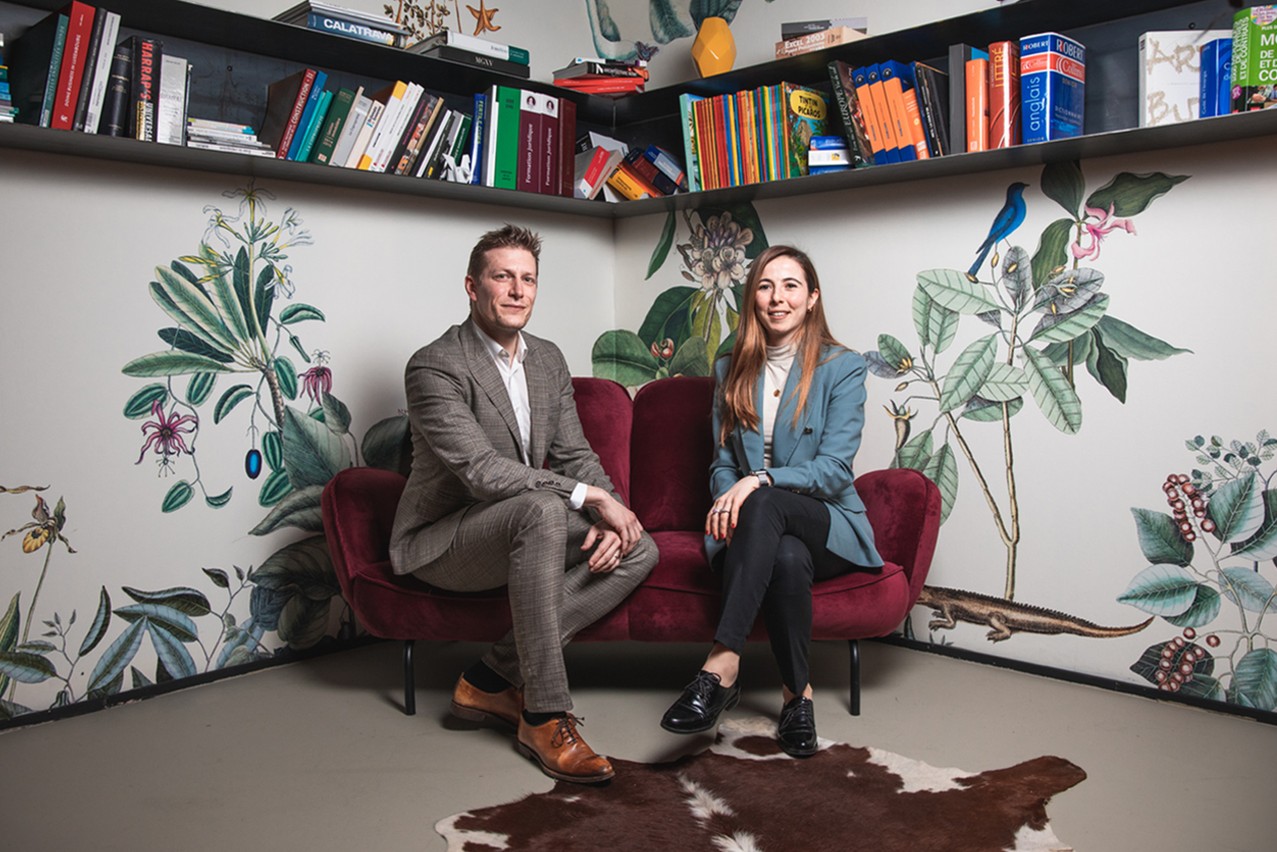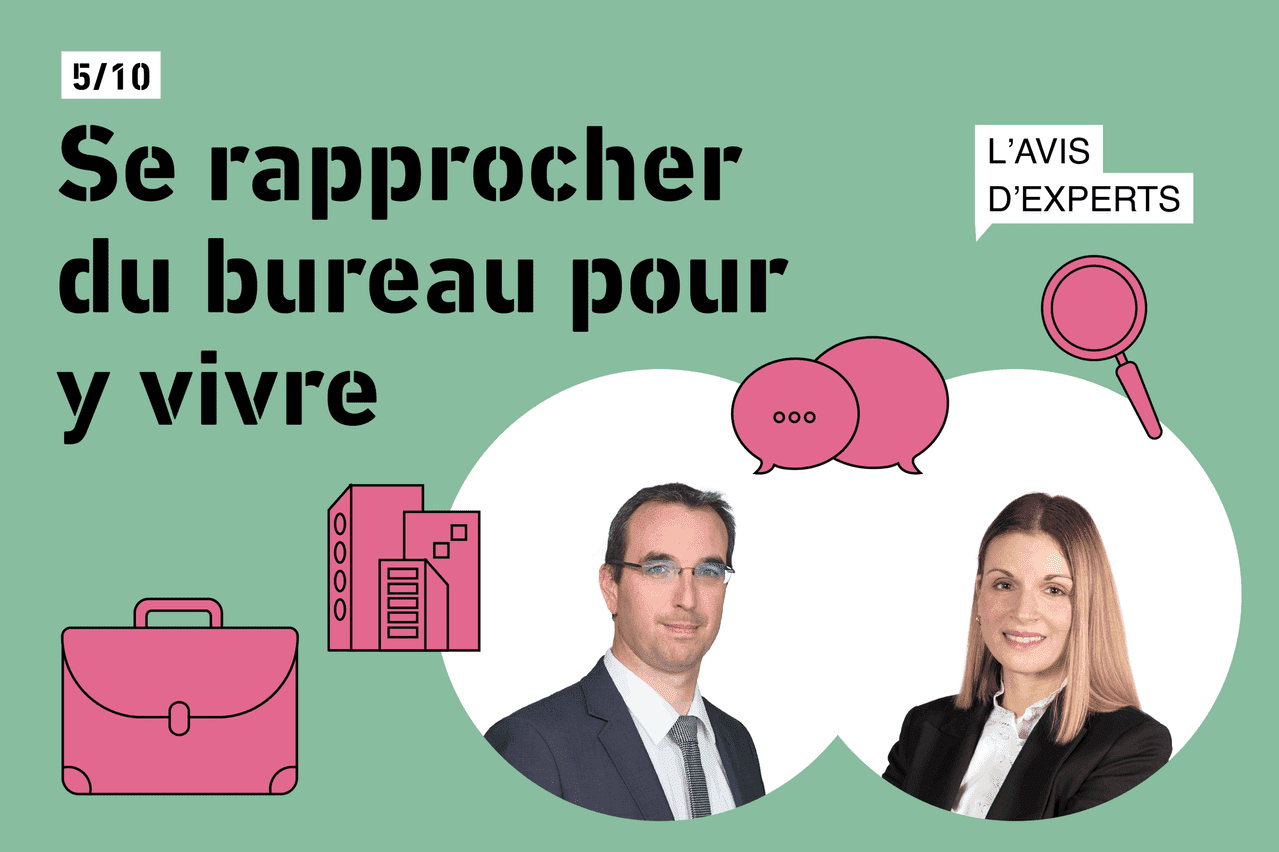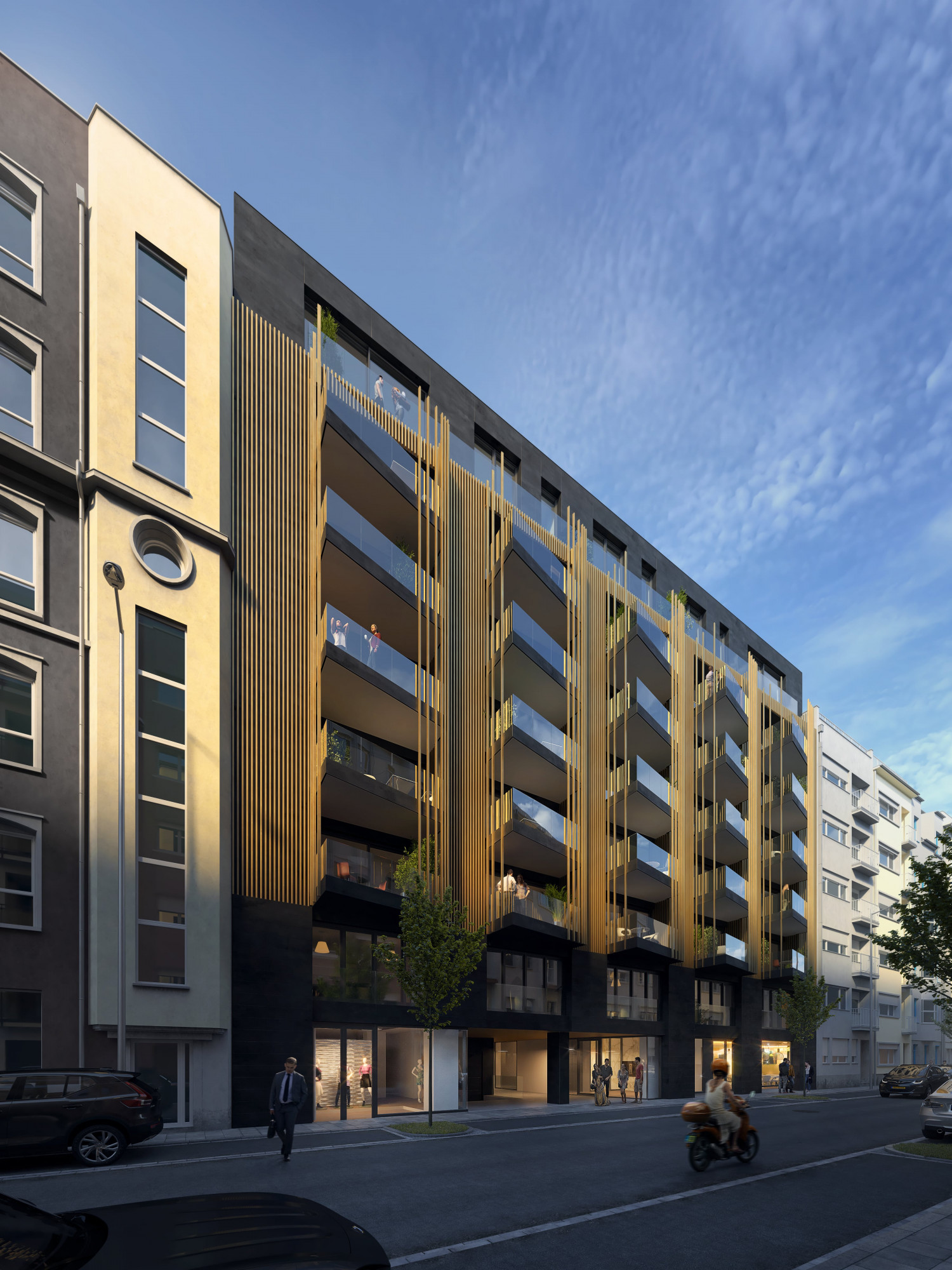01/04/2022
Immobilier
What’s the future for office space

#Immobilier
In recent years, employees’ expectations about their working conditions have changed: they want a better work-life balance and greater attention paid to their well-being. Satisfying these demands nowadays means rethinking office spaces.
What are the desires and aspirations of employees today regarding their professional environment? Several trends can be observed in the wake of the pandemic. Accustomed to working remotely and being equipped accordingly, two-thirds of them now wish to continue in hybrid mode with some degree of flexibility. With more than 250,000 cross-border commuters, the Luxembourg workforce is particularly concerned with mobility issues. Today’s office workers want to be closer to their place of work and cut back on travel.
At the same time, almost 75% of employees prioritise a better work-life balance and the benefits it brings. “This proportion is likely to increase with millennials, who will account for 75% of the workforce by 2025,” says Julien Pillot, Head of Office Agency at INOWAI. Accustomed to digital technology and remote meetings, workers are nonetheless expressing their desire to return to the office to socialise and collaborate more with their colleagues. They are interested in their health and well-being as well as services offered by their company.
Putting people at the heart of real-estate thinking
In addition to these expectations, 25% of employees say they are ready to change jobs because of questions over their current working conditions. “At the same time, we have a situation of almost full employment, with an unemployment rate of just 4.9%. Indeed, the workforce has continued to grow even during the health crisis. One challenge for HR, therefore, is retaining and attracting new talent. Companies can adapt by listening to the needs of their employees and by putting people at the heart of their real-estate thinking.”
A response to these issues and expectations can be seen in recent trends. “In terms of real-estate strategy, we’re seeing several approaches. If a company’s lease is about to expire or has some flexibility, the firm can choose to relocate to a modern building or opt for satellite offices.” Some employees no longer work from home, but they don’t want to travel long distances. Therefore, companies are on a quest for offices close to the border, primarily business centres that have already been fitted out and don’t need more money spending on them.
Companies can adapt by putting people at the heart of their real-estate thinking. Julien Pillot, Head of Office Agency, INOWAI
Modernising workspaces
For companies that can’t or won’t move, it’s time for a rethink. “This new vision involves rethinking the layout of office spaces. This involves decompartmentalising them to facilitate small and large-scale movements. The focus is on flexible and innovative offices, but also on more comfortable areas where people can meet and work together,” says Demet Karayer, Project Manager and Architect at INOWAI’s Project Management Department.
This process involves four spaces. The first is the community space, where lounge areas or shared desks reinforce collaboration and socialisation. The second space encourages concentration with telephone-booth-like “bubbles”. The workspace is modernised to give freedom to the employee. “We favour flexible and modular furniture with electric, adjustable desks, mobile drawer and shelving units, and moveable soundproofed walls that reflect the client’s corporate identity. We do all this in islands of 3-4 people, which are connected to an open space.” The last space is the outdoor area, which features urban street and park furniture to make the exterior as comfortable as the interior. This space is also linked to electro-mobility with electric charging stations and shared bicycles to facilitate travel.
Buildings offering these outdoor spaces are more popular because there is a real need to connect with nature. Julien Pillot. , Head of Office Agency, INOWAI
Offering a property solution
Inowai’s Project Management department has developed its service to support CEOs, CFOs and HR departments in their thinking and to satisfy their expectations. “At the request of other departments, including the Office Agency, we intervene upstream by carrying out visits even before a lease is signed to understand the company’s philosophy and objectives. We bring expertise from a technical and architectural/design point of view,” comments Demet Karayer.
While INOWAI’s survey is a good thing, it also presents challenges. “The market has shown resilience. We’ve seen an improvement in building stock but also a rethink on the part of companies. The question now is: ‘What will happen if everyone looks for office space at the same time? Will that stress the market and impact on vacancy rates, competition and therefore negotiation margins?’”
We bring expertise from a technical and architectural/design point of view. Demet Karayer, Project Manager and Architect, INOWAI
Employees’ expectations in a few figures
66%: almost two out of three employees want to continue working in hybrid mode.75%: three out of four employees want to enjoy a better work-life balance.
50%: one in two employees would like to work for a company that considers their well-being.
25%: a quarter of employees question their working conditions and say they are ready to change jobs.
Looking for your next office space? Contact our experts !



